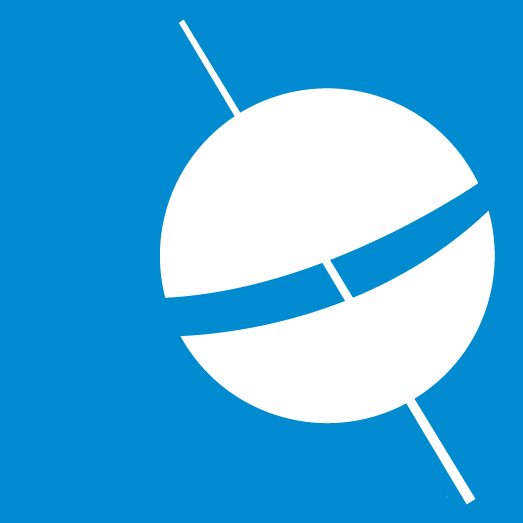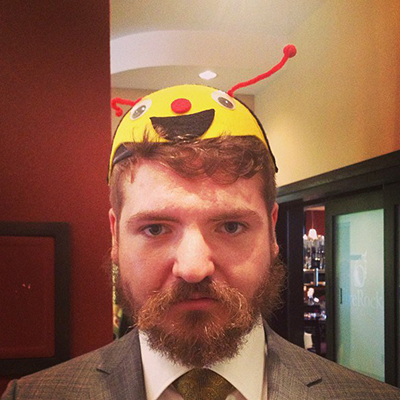Deorbital, a games criticism site, is not publishing articles. Not currently. In the latest letter from the editor, they announced that their crowdfunding campaign had fallen short of a full year’s worth of material. One editor emphasized to me that it isn’t the first odinsleep for the site and probably not its last.
“We’re not dead,” said co-founder Dante Douglas in a Skype call. “Deorbital never made money. We had money and we spent it all. Now we’re back at zero.”

Dante Douglas and Amr Al-Aaser had never met prior to starting the games publication together in 2016. The pair had watched as some of their favorite game critics from around the internet, like Austin Walker, Gita Jackson, and Maddy Myers, found stable positions at major digital media groups. Solid developments, but Douglas was wondering about critical spaces where new voices could cohabit with writers of certain clout. Young critics might not have access to industry contacts or new releases to compete with other freelancers at mainstream publications.
Fortuitously, a “mysterious benefactor” felt similarly and entrusted the two with a modest sum of money to start a publication untethered from the major news cycles. Douglas, admitting they “romanticized” the quarterly model, started a GoFundMe to secure releases for every season.
With this independent funding, Deorbital published essays on the “indie game apocalypse” panic, queer monsters, and Brazil’s prolific modding culture, as well as an article about one of my favorite tonally acrobatic mobile games, Crazy Taxi Tycoon. That the site had fallen short of funding goals was a shock to their readers.
“I’m sad that we didn’t have a chance to do another quarterly,” Douglas said, “but I’m not disappointed in the outcome we’ve had.”
When I asked Douglas why they went with GoFundMe over Patreon, a platform that streamlines a lot of the funding process, he said that he and Amr didn’t feel like they had the time to run one full-time. Patreon, Douglas feels, would imply more regular updates and requires an amount of carnival barking to maintain. As the crow flies, singular crowdfunding campaigns need some level of marketing blasts as well. Douglas fesses a Patreon is not off the table.

Games criticism (if not the media in general) is in strange tides these days. There’s more criticism and content than funding models to support it. Advertisers are increasingly looking for numbers that only colossal sites like Google, YouTube, and Facebook confidently provide. Commercial publications try to play along or game these rules, but a slight tweak to an algorithm can spike a career’s worth of work. More cynically, there’s little incentive for Google and Facebook to even share these audiences. The trend suggests they’re comfortable keeping the eyes of the world on their own sites.
What this means as far as game sites go is that straying too far from the utmost popular topics can be a liability. Some readers complain about the density of coverage for games like Fortnite, Overwatch and Pokémon. If it’s any solace, those complaints are likely happening internally as well. Streamers and video personalities, once eyed as the alternative for publicists, are no longer free of this hanging sword either. With the monetization of Twitch and YouTube comes the inability to risk talking about subjects that aren’t capable of snaring the maximum amount of attention.
Crowdfunding—Patreon especially—has become a solution. Patreon allows people to give their favorite creators money directly, often pay-what-you-can, on a regular basis. That basis may be monthly or as frequently as each new content release. Not relying on clicks and advertisers alone means these creators can focus on a more diverse subjects. Being funded directly by their audience is as close as digital media might get to ye olde subscription model. A fully automated tip jar.
Patreon has enabled alternative publications (and not-so-alternative publications) to give themselves the funding boosts that clicks alone won’t. Groups like Zeal, Critical Distance and Feminist Frequency; critics like Christopher Franklin, Harry Brewis and Jim Sterling; and historians like Kim Justice and Jeremy Parish all use Patreon. Easy Allies, the spiritual successor to the popular site GameTrailers, has successfully expanded operations through a Patreon page, even securing an office space.

After graduating from Georgia State University’s journalism program in 2011, George Weidman, better known as Super Bunnyhop, felt that he wasn’t going to gain much traction in the field without putting a few freebies into the wild.
“I decided to get real fancy with that project and make the channel,” Weidman said. “Then it ended up making more money than a legit journalism job would have made.”
Weidman has video reviews of games big and indie, new and retro. His most popular videos are extensive breakdowns of the Metal Gear Solid and Sonic the Hedgehog series. Recently Weidman has been analyzing the labor turmoil for game testers and the downfall of Telltale Games.
For its first leg, Weidman’s YouTube channel was only a supplement to his “crappy, real life jobs.” Five years into his video career, Weidman decided to open a Patreon page. He wasn’t comfortable giving specifics, but Weidman was willing to say the Patreon money blocks out the sun compared to YouTube revenue. He said he’s sort of lucky no one hired him right out of school.

Being a Patreon-funded games critic can be where dreams become nightmares. Weidman isn’t nuts about the isolation that comes from working alone. He also describes a kind of impostor syndrome that comes from looking at a direct financial number tethered to all of your creative work.
“You get into a mindset about your fans,” Weidman said. “Every single one of them contribute to the sum. Having a stake and expecting you to get stuff out. That is very mentally draining… Even when I had multiple jobs it ended up keeping me on a better schedule than Patreon. [I’m] now more susceptible to burnout and the consequences of that burnout is even greater.”
Exhaustion isn’t Patreon’s only liability. While Patreon is a tool to make yourself more independent from rampaging capitalism, the tool itself is not independent from rampaging capitalism. Patreon takes a cut from everyone who uses it, which sounds sustainable, but its board of investors, as boards of investors do, consistently pressure the service to find more ways to grow.
Over the last few years, Patreon has made naked attempts to increase their profits at the risk of their own users. One of the most infamous moves was a 2017 announcement that the company was shifting its cut from the creator’s end to a flat tax on every patron, which would have disproportionately affected smaller donors. Backlash was swift. They canceled the model within a week, but this attempt to change such a crucial tenet of the service has kept Patreon users on edge ever since.

“I’m not sure why Patreon’s overhead costs are high enough to warrant so much trouble with so much investment,” Weidman said. “As far as I can tell on my end and the services I receive, the hosting costs at least should be light.”
“We need a Patreon model that doesn’t have a board,” Douglas said. “Pateron has a perfect model, and they have ruined it over and over and over. If there is a flat fee structure taken on Patreon’s end then they have effectively infinite money. But they decided that is not good enough, and that is the problem.”
Douglas, who isn’t currently using Patreon, isn’t losing sleep about the service stepping over the line. If they try to pull something that trivializes the people depending on it, then they can migrate to any heir apparent. Ko-fi, a similar service, is picking up steam. Facebook’s alternative isn’t thrilling people, but it does illustrate growing interest in a patronage model. Then again, even if a viable competitor arises, creators with invested Patreon bases may struggle to get all of their supporters to migrate with them.
Games criticism doesn’t want for an audience. The challenge is turning that audience into income. Fortunately for independent outlets, the transition is easier for the nimble. Deorbital is looking to commission writers, not start an enterprise. Weidman’s carved a space for himself to talk about what interests him most, not what’s topping the heap on Twitch. Hopping from island to island as the water rises is looking like the norm for the future of media. And games, if nothing else, have taught us the importance of a well-timed hop.
Header image: Patreon

Zack Kotzer is a former carny and current writer out of Toronto. His work has been published in The Globe and Mail, The Atlantic, Motherboard, Polygon, Kill Screen, and a column in NOW Magazine. His first book, Keeping the Ball Alive, details the history of the only pinball factory to survive the ’90s. He collects Fido Dido merch.